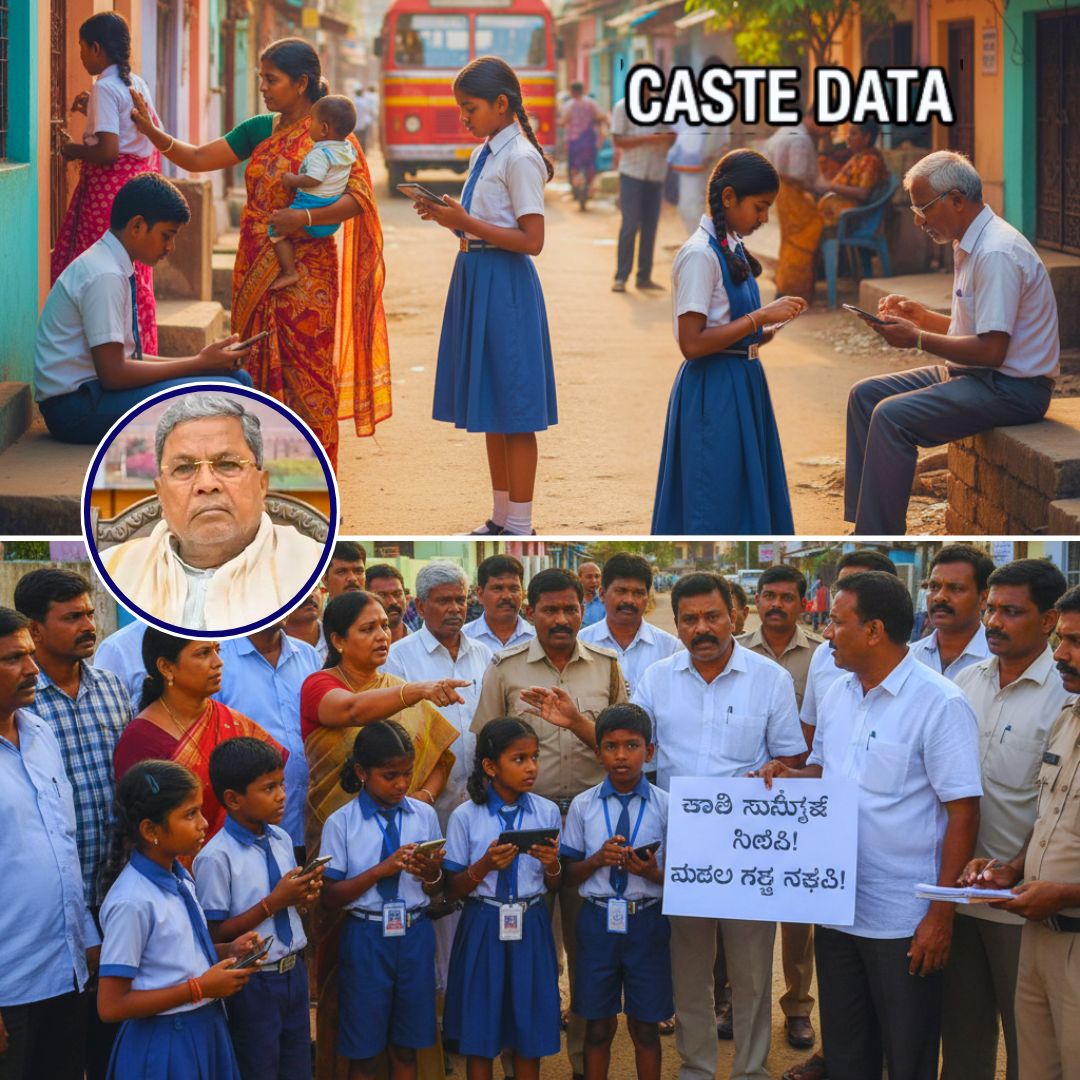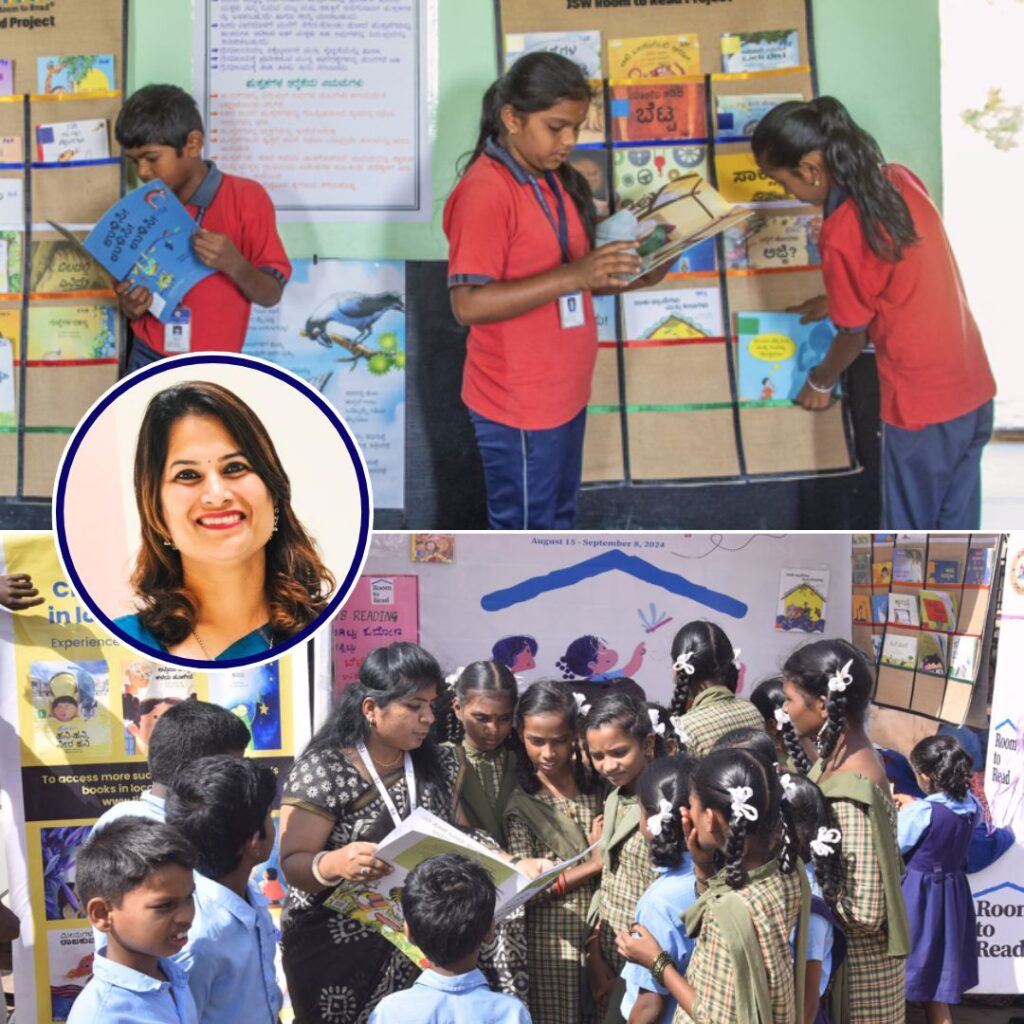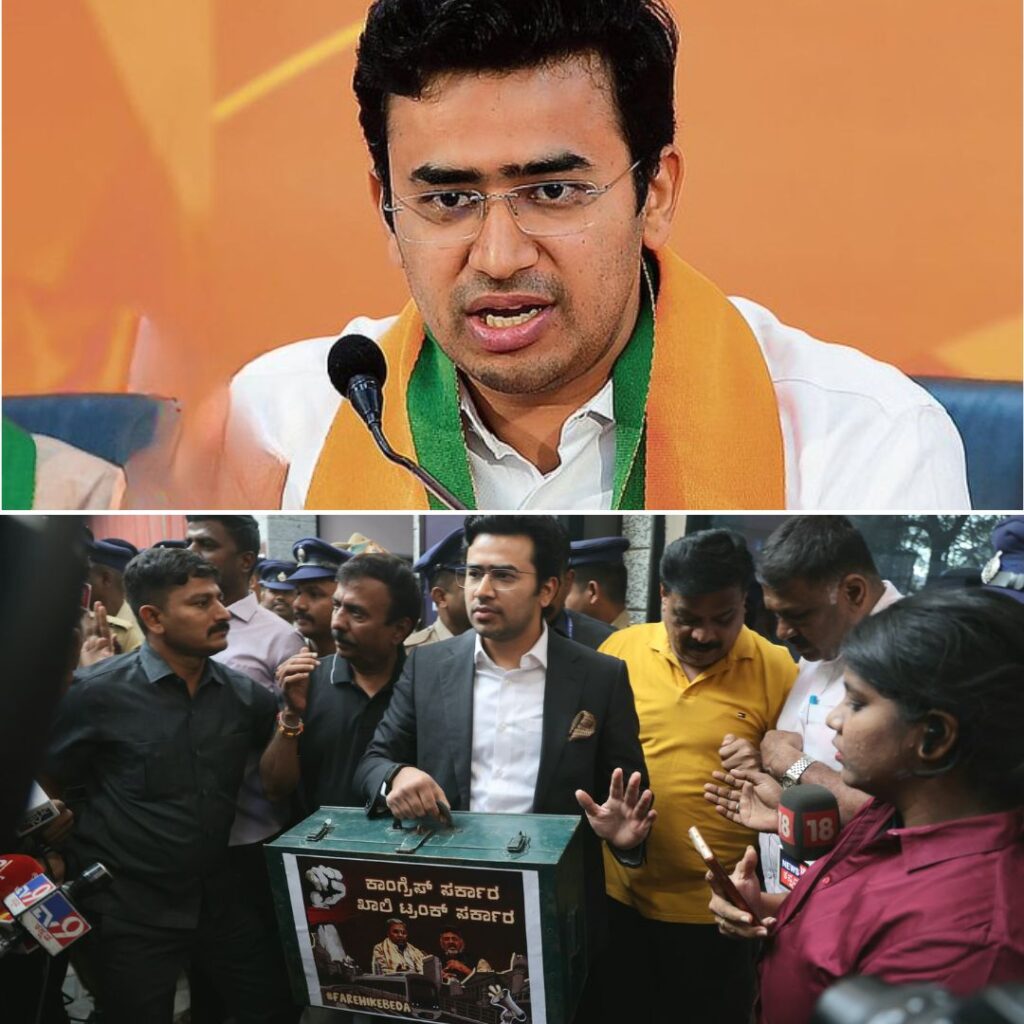Chikkallasandra in Bengaluru has witnessed a troubling incident: a government school teacher allegedly instructed Class 7 students to collect caste data from local households using mobile devices. Residents, alarmed at the sight of children conducting sensitive surveys, confronted the students and the involved teacher, leading to demands for accountability and official action.
Karnataka authorities have since emphasised the importance of voluntary and confidential participation in the ongoing caste survey and launched an investigation into the incident, underscoring their commitment to child rights and proper protocols.
Children Used for Sensitive Data Collection: Community Outrage
Onlookers in Chikkallasandra were stunned when they saw schoolchildren approaching homes to record caste information, a responsibility normally carried out by qualified enumerators. Neighbourhood residents, concerned for the safety and wellbeing of the children involved, questioned both the students and the teacher who had dispatched them.
The teacher reportedly confessed that technical hurdles in logging location coordinates and unique household identifiers (UHID numbers) motivated him to seek help from the students, believing they could “find the right location” for mobile data entry. “We were disturbed to find our children involved in such sensitive work, especially when adults should be responsible,” said one guardian, reflecting widespread dismay over the breach of trust and protocol.
As videos of the incident circulated online, the local education department responded swiftly, launching a preliminary investigation and reiterating that children should not participate in official data collection, especially when it involves confidential or personal information. The episode quickly became a focal point in Karnataka’s ongoing discussions on ethical survey conduct and data privacy for vulnerable groups.
Survey Hurdles and Protests: Teachers Under Pressure
This incident comes amid mounting difficulties in the larger Karnataka caste survey, which seeks to gather socio-educational data across the state. Enumerators, including many teachers, have cited frequent technical glitches with mobile survey apps, unclear protocols, and the pressure to meet quotas.
Some educators have even protested harsh working conditions, including long hours, personal health impacts, and risks to their professional integrity. Civic officials in other districts have faced suspension over survey-related negligence, highlighting the stakes and scrutiny surrounding the process.
Authorities have been adamant that no data should be forced, and respondents must retain the right to confidentiality. Recently, Deputy Chief Minister DK Shivakumar told officials, “Don’t ask people how many goats or fridges they have—personal questions are off limits.
The survey must be voluntary and confidential”. The High Court has further clarified that all participation is optional and adequate safeguards must be maintained to protect the dignity of each household surveyed. Despite these reassurances, incidents like Chikkallasandra reveal the persistent gaps between policy and execution.
Officials’ Response and Commitment to Reform
Following the Chikkallasandra incident, officials stressed that children ought not to be involved in any part of the survey, particularly given the personal nature of the questions asked. The education department has announced a formal inquiry into the teacher’s actions and promised strict accountability. “We will ensure that those responsible for disregarding child protection guidelines are held accountable,” a senior official stated, highlighting a commitment to upholding children’s welfare throughout the data collection campaign.
This situation has also intensified dialogue among teachers, civil society organisations, and local leaders about familial consent, ethical boundaries, and the urgent need for improved training and digital infrastructure.
The Logical Indian’s Perspective: Fostering Safety and Dialogue
Deploying children for sensitive survey work runs counter to principles of empathy, fairness, and child-centred education. Schools must prioritise protection and nurture, not exploitation.
The Logical Indian urges authorities to reinforce robust safeguards, empower communities to question and report unethical practices, and design survey protocols that respect every citizen’s dignity and privacy. Incidents like this highlight the need for persistent dialogue and vigilance from all stakeholders-including teachers, parents, and lawmakers.












